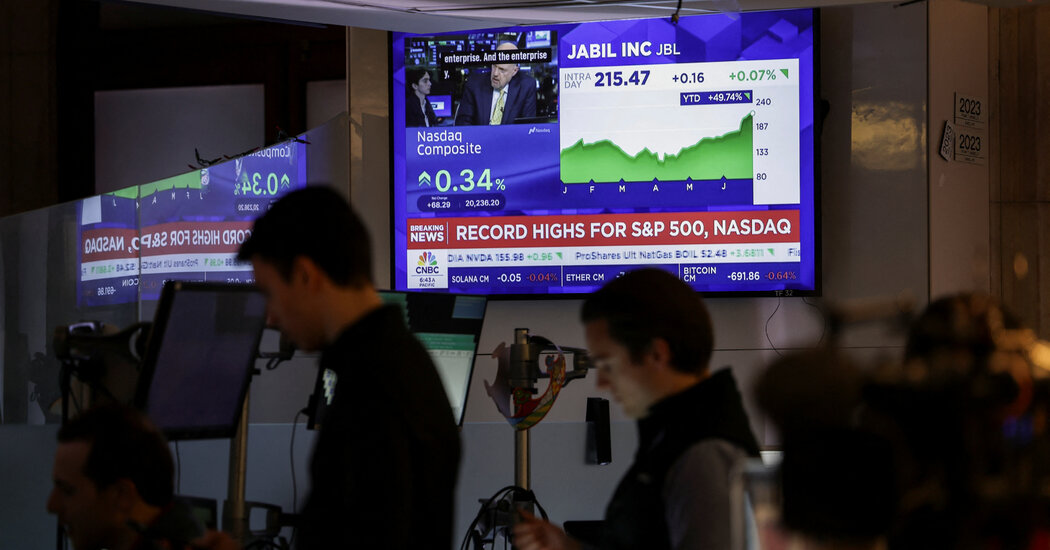Stock markets dropped around the world on Friday as investors confronted a new barrage of tariffs announced by President Trump, significantly raising the cost of trade with the United States.
At the same time, traders were parsing the earnings of some of America’s biggest companies, including Amazon, Apple and Exxon, and awaiting the latest monthly jobs report later on Friday morning, a key economic release that will inform the Federal Reserve’s next interest rate move.
The declines started in Asia and gathered momentum in Europe. Japan’s Nikkei closed down 0.7 percent, and the Shanghai Stock Exchange shed 0.4 percent. The Stoxx Europe 600 index, which includes the continent’s largest companies, dropped 1.4 percent.
In New York, futures for the S&P 500 index were 1 percent lower, reflecting anxiety about tariffs as well as company news.
In premarket trading, Amazon fell nearly 8 percent after it projected lower-than-expected profits for this year, as it spends heavily on artificial intelligence.
U.S. Treasuries were broadly flat, as traders waited for the latest monthly jobs report. Economists expect a slowdown in the number of jobs added in July, which could put pressure on the Fed to cut rates. Mr. Trump continued his attacks on the central bank on Friday morning, posting on social media that Fed Chair Jerome H. Powell should “substantially” lower rates. If he doesn’t, the Fed board should “assume control,” Mr. Trump said.
Many major currencies fell against the U.S. dollar, including the South Korean won, South African rand, the British pound and Canadian dollar. Notably, the Swiss franc dropped 0.4 percent against the dollar and the euro. Normally, traders seek out the franc as a haven in times of economic turmoil, but that wasn’t the case after Mr. Trump said that he’d impose a 39 percent tariff on Swiss imports, among the highest rates announced on Thursday.
Analysts at the bank ING said the relatively “muted” response in markets on Friday suggested that there were lingering expectations that the Trump administration would reach more trade deals with countries before the revised tariff rates took effect next week, and that traders were more focused on today’s economic data.
The latest tariffs rates are set to come into effect on Aug. 7 but “markets continue to treat this with some diffidence,” they wrote.
Eshe Nelson is a Times reporter based in London, covering economics and business news.
The post Stocks Tumble as Investors Grapple With the Rising Cost of Trade appeared first on New York Times.




